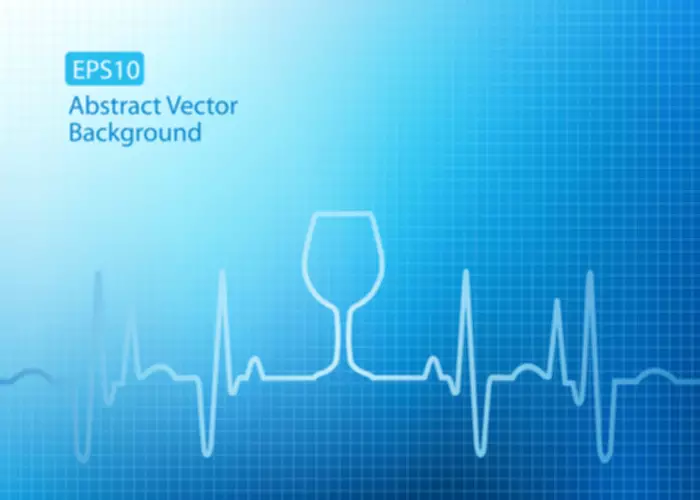
Detox is an inpatient setting with medical staff available at all times. You may be given anxiolytic and sedative medications to help overcome the anxiety and insomnia that is common with alcohol withdrawal. Drugs like benzodiazepines are often used to treat alcohol withdrawal, and they can also be used to taper are alcohol withdrawal seizures dangerous you off alcohol. Treatment significantly lowers the likelihood that symptoms will become deadly. If you seek medical treatment before quitting alcohol cold turkey, you may be able to taper slowly with a medical professional’s help. Tapering can help avoid serious withdrawal symptoms, including delirium tremens.

In the First 8 Hours

Binge drinking can cause alcohol withdrawal seizures in people, even for individuals who do not have epilepsy. Many dependent drinkers can stop drinking without experiencing severe withdrawal. However, intercurrent illness (trauma, fever, hypoxia) can contribute to severe withdrawal.
- In contrast to epileptic seizures, alcohol withdrawal seizures originate in brainstem systems and involve unique cellular and molecular mechanisms.
- After the seizure, you should position them on their side and ensure that their airway is clear while waiting for emergency assistance.
- Behavioral health treatment for alcohol problems is often (but not always) covered by insurance.
Clinical management of alcohol withdrawal: A systematic review
Delirium tremens is estimated to come with a 35% risk of death if you go through it without treatment. Seizures may occur in around 5% of people with alcohol withdrawal syndrome. Alcohol-related seizures in those with epilepsy mostly occur due to alcohol withdrawal rather than the act of drinking itself. According to older research, alcohol consumption may have a causal relationship with seizures, and people who drink 200 g or more of alcohol daily may have up to a 20-fold increase in seizure risk. In some cases, excessive alcohol consumption may lead people to miss meals or medication, which can also make seizures more likely in people with epilepsy.
Causes of alcohol withdrawal delirium
If you or a loved one is struggling with an alcohol use disorder (unhealthy patterns of alcohol consumption), get in touch with Discover Recovery Treatment Center today. We offer holistic addiction treatment programs that are tailored to the needs of each client. Supervision by our highly experienced healthcare team during alcohol detox can lower the risk of alcohol withdrawal seizures and keep you safe and comfortable as you start your journey to lasting sobriety. The STT was proposed by Saitz et al. in 1994[26] where in chlordiazepoxide was given when CIWA-Ar ratings were eight or more. Patients who are non-verbal (e.g. stupor due to head injury) may not be suited for this regimen as they may not be able to inform the nursing personnel if they were to experience any withdrawal symptoms.
Delirium Tremens

This article aims to review the evidence base for appropriate clinical management of the alcohol withdrawal syndrome. We searched Pubmed for articles published in English on pharmacological management of alcohol withdrawal in humans with no limit on the date of publication. Articles not relevant to clinical management were excluded based on the titles and abstract available. Full-text articles were obtained from this list and the cross-references. There were four meta-analyses, 9 systematic reviews, 26 review articles and other type of publications like textbooks.
Abrupt cessation of prolonged alcohol consumption unmasks these changes, leading to the alcohol withdrawal syndrome, which includes blackouts, tremors, muscular rigidity, delirium tremens, and seizures (5,6). Alcohol withdrawal seizures typically occur 6 to 48 hours after discontinuation of alcohol consumption and are usually generalized tonic–clonic seizures, although partial seizures also occur (7,8). Benzodiazepines are effective in the primary prevention of ethanol-withdrawal seizures during alcohol detoxification.
How alcohol withdrawal delirium is treated
For adequate alleviation of delirious symptoms, 200 mg capsules are administered (maximum 24 capsules per day) and doses are repeated every 2–3 h until sufficient calming. As with BZDs, CNS respiratory center depression may emerge, especially in combination with BZDs, whose daily doses should be reduced to 15–20%. Accordingly, the combinatory intake of clomethiazole and ethanol should be avoided due to its possible life‐threatening effects. The quantitative, measurable detection of drinking is important for the successful treatment of AUD.
While you’re in inpatient treatment, you may also be treated with IV fluid, which can help keep you hydrated through the withdrawal process. Medical detox programs may also involve therapies to address alcohol use disorders. Individual and group therapy sessions can help to address some of the underlying causes of your alcohol addiction.

Alcohol withdrawal syndrome is a clinical diagnosis that relies heavily on the history and physical, which is also used to gauge disease severity. When in doubt, clinicians can refer to the DMS-V criteria for diagnosis. If you experience severe symptoms of alcohol withdrawal, like seizures, you will most likely require hospitalization. While in the hospital, your medical team will monitor you for other signs of withdrawal. When Ativan binds to GABA receptors, it makes it easier for GABA to bind to these receptors. By making it easier for GABA to attach to its receptors, Ativan increases GABA activity and calms your nervous system.

Small amounts of alcohol do not change the blood levels of anti-seizure drugs. They also do not cause changes in electroencephalographic (EEG) readings (brain activity tracings). Those who have a history of detoxification are more likely to experience seizures during alcohol withdrawal. In these cases, we recommend that patients should be started immediately on a SML dose regimen, while monitoring the withdrawal severity (CIWA-Ar ratings) and clinical signs of tachycardia and hypertension. A fixed dose regimen can be safely used in such patients in case adequate trained personnel are not available or if outpatient treatment is advised. Alcohol withdrawal (also called alcohol withdrawal syndrome, or AWS) happens when a person suddenly stops or significantly reduces drinking after long-term heavy alcohol use.

